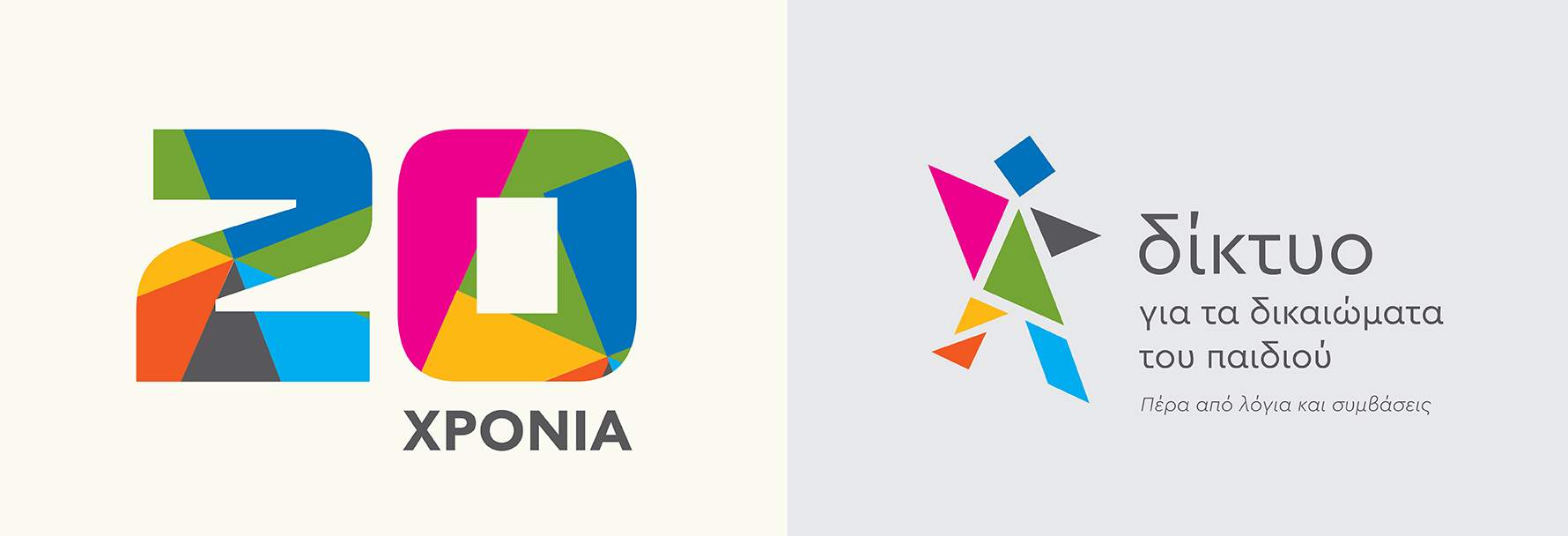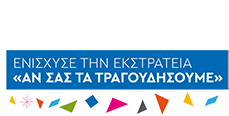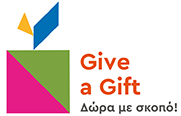In this section, we aim to present the abundance of international and European documents that protect the rights of the child and bind Greece. The main ones are the United Nations International Convention on the Rights of the Child, which concerns children exclusively, and the European Convention for the Protection of Human Rights and Fundamental Freedoms (ECHR), which includes children. Special reference is made to the work of the Committee on the Rights of the Child, which oversees the implementation of the former Convention, and to the case-law of the European Court of Human Rights (ECtHR), which has jurisdiction over all matters concerning the interpretation and application of the latter Convention. These two bodies relentlessly promote the protection of children’s rights and it is essential to make their work known to all.
NATIONAL AND EUROPEAN DOCUMENTS
United Nations (UN)
International Convention on the Rights of the Child Ν. 2101/1992, ΦΕΚ Α’ 192
Optional Protocol to the Convention on the Rights of the Child concerning the involvement of children in armed conflict Ν. 3080/2002 ΦΕΚ Α’ 312
Optional Protocol to the Convention on the Rights of the Child on child trafficking, child prostitution and child pornography Ν. 3625/2007 ΦΕΚ Α’ 290
Protocol to Prevent, Suppress and Punish Trafficking in Persons, Especially Women and Children, Complementing the United Nations Convention Against Transnational Organized Crime Ν. 3875/2010 ΦΕΚ Α’158
Convention on the Rights of Persons with Disabilities and the Optional Protocol to the Convention on the Rights of Persons with Disabilities Ν. 4074/2012 ΦΕΚ Α’88
International Convention for the Protection of All Persons from Enforced Disappearance and Adaptation of Greek Legislation and Other Provisions Ν. 4268/2014 ΦΕΚ Α’141
INTERNATIONAL LABOUR ORGANIZATION (ILO)
ILO Convention (No. 138) on the minimum age for entry into employment Ν. 1182/1981 ΦΕΚ Α’193
ILO Convention (No. 182) on the Prohibition of the Worst Forms of Child Labor and Immediate Action to Eliminate It Ν. 2918/2001 ΦΕΚ Α’119
COUNCIL OF EUROPE
European Convention for the Protection of Human Rights and Fundamental Freedoms as amended by Protocols no. 11 and 14 together with the Additional Protocol and Protocol No. 7 European Convention on Human Rights
Council of Europe Convention on the Adoption of Minors Ν. 1049/1980 ΦΕΚ Α’ 114
Ευρωπαϊκή Σύμβαση για το νομικό καθεστώς των τέκνων που γεννήθηκαν χωρίς γάμο των γονέων τους Ν. 1702/1987 ΦΕΚ Α’ 86
European Convention on the Recognition and Enforcement of Decisions on the Care of Children and the Restoration of Their Care Details of Treaty – European Convention on Recognition and Enforcement of Decisions concerning Custody of Children and on Restoration of Custody of Children
European Convention on the Rights of the Child European Convention on the Exercise of Children’s Rights
Council of Europe Convention on the Protection of Children against Sexual Exploitation and Abuse Ν. 3727/2008 ΦΕΚ Α’ 257
Council of Europe Convention on Action against Trafficking in Human Beings Ν. 4216/2013 ΦΕΚ Α΄ 266
Revised European Social Charter Ν. 4359/2016 ΦΕΚ Α’ 5
Council of Europe Convention on Cybercrime Ν. 4411/2016 ΦΕΚ Α’142
European Union
Charter of fundamental rights of the European Union
HAGUE CONFERENCE ON PRIVATE INTERNATIONAL LAW
Convention of 25 October 1980 on the Civil Matters of International Child Abduction Ν. 2102/1992 ΦΕΚ Α’ 193
Convention of 2 October 1973 on the law applicable to maintenance obligations Ν. 3137/2003 ΦΕΚ Α’90
Convention of 2 October 1973 on the recognition and enforcement of decisions on maintenance obligations Ν. 3171/2003 ΦΕΚ Α’192
Convention of 29 May 1993 on the Protection of Children and Cooperation on Transnational Adoption Ν. 3765/2009 ΦΕΚ Α’ 101
Convention of 19 October 1996 on jurisdiction, applicable law, recognition, enforcement and cooperation on parental responsibility and child protection measures Ν. 4020/2011 ΦΕΚ Α’217
Convention of 23 November 2007 on the recovery of child nutrition and other forms of family nutrition in a foreign country (Council Decision 2011/432 / EU of 9 June 2011, Council Decision 2014/218 / EU of 9 April 2014)
A protocol of 23 November 2007 on the law applicable to maintenance obligations
COMMITTEE ON THE RIGHTS OF THE CHILD
The Committee on the Rights of the Child is a body of independent experts that oversee the implementation of the International Convention on the Rights of the Child by the Member States bound by it. It also oversees the implementation of the two Optional Protocols to the Convention, the first dealing with the involvement of children in armed conflict and the second relating to the sale of children, child prostitution and child pornography.
All Member States are required to submit reports on the implementation of rights, as set out in the Convention, to the Committee at regular intervals. They are required to submit the first report within two years of their ratification of the Convention and every five years thereafter. The Committee examines each report and presents its concerns and recommendations to the Member State in the form of ‘concluding remarks’.
In addition, the Commission examines the supplementary reports submitted by the States that have signed the two Optional Protocols. The Commission also interprets all provisions relating to children’s rights in the form of general comments.
PROTECTION OF CHILDREN’S RIGHTS IN PRACTICE
GREECE AND THE COMMITTEE ON THE RIGHTS OF THE CHILD
Α. The International Convention on the Rights of the Child
The International Convention on the Rights of the Child was ratified by Greece under Law 2101/1992 (Government Gazette A 1992). Since then, the Greek state has submitted reports to the Committee on the Rights of the Child in 2000 (initial report) and in 2009 (2nd and 3rd periodic reports). In addition, non-government organisations have submitted alternative reports to the Committee on the Rights of the Child, the first in 2001 (as a follow-up to the original report) and subsequently in 2011 (following periodic reports 2 and 3).
The Network for Children’s Rights was one of the contributors of the last alternative report. The Ombudsman (following a review of the Second and Third Regular Reports) also submitted a report to the Commission entitled “Findings and Proposals of an Independent Authority for the Implementation of Children’s Rights in Greece (July 2003 – December 2011)”.
The Committee on the Rights of the Child issued its first concluding remarks on children’s rights in Greece in 2002, in response to the initial report of the Greek State. Concluding remarks by the Commission were also issued in 2012 following the review of Greece’s second and third periodic reports.
B. Optional Protocols
The Optional Protocol on the Involvement of Children in Armed Conflict was ratified by Greece under Law 3080/2002 (Government Gazette A’ 312), while the Optional Protocol on the Sale of Children, Child Prostitution and Child Pornography was ratified under Law 3625/2007 (Government Gazette) A’ 290).
Greece submitted an initial report in 2010 on the implementation of the Optional Protocol on the involvement of children in armed conflict, and in 2011 on the implementation of the Optional Protocol on the sale of children, child prostitution and child pornography The Commission, in turn, responded to the two initial reports with concluding remarks in 2012 (here & here).
GENERAL COMMENTS FROM THE COMMITTEE ON THE RIGHTS OF THE CHILD
The Committee on the Rights of the Child interprets the provisions on children’s rights in the form of General Comments. The Committee has so far issued the following general comments:
Ν°22 (2017) Τhe general principles regarding the human rights of children in the context of international migration [Joint general comment N° 3 (2017) of the Committee on the Protection of the Rights of All Migrant Workers and Members of Their Families and N° 22 (2017) of the Committee on the Rights of the Child]: Ν°22 (2017) General principles concerning the rights of children in the context of international migration (Joint General Comment N ° 3 (2017) of the Committee on the Protection of the Rights of Migrant Workers and their Family Members and N ° 22 (2017) of the Committee on the Rights of the Child)
Ν°21 (2017) Children in street situations: Ν°21 (2017)
N° 20 (2016) The implementation of the rights of the child during adolescence: N°20 (2016)
N°19 (2016) Public budgeting for the realization of children’s rights (art. 4): N°19 (2016)
N°18 (2014) Ηarmful practices (Joint general recommendation/general comment N° 31 of the Committee on the Elimination of Discrimination against Women and N° 18 of the Committee on the Rights of the Child): N°18 (2014)
N°17 (2013) Τhe right of the child to rest, leisure, play, recreational activities, cultural life and the arts (art. 31): Ν°17 (2013)
N°16 (2013) State obligations regarding the impact of the business sector on children’s rights: N°16 (2013)
N°15 (2013) Τhe right of the child to the enjoyment of the highest attainable standard of health (art. 24): N°15 (2013)
N°14 (2013) Τhe right of the child to have his or her best interests taken as a primary consideration (art.3, para. 1): N°14 (2013)
N°13 (2011) The right of the child to freedom from all forms of violence: N°13 (2011)
N°12 (2009) The right of the child to be heard: N°12 (2009)
N°11 (2009) Indigenous children and their rights under the Convention: N°11 (2009)
N°10 (2007) Children’s rights in juvenile justice: N°10 (2007)
Ν° 9 (2006) The rights of children with disabilities: Ν° 9 (2006)
N° 8 (2006) The right of the child to protection from corporal punishment and other cruel or degrading forms of punishment (arts. 19; 28, para. 2; and 37, inter alia): N° 8 (2006)
N° 7 (2005) Implementing child rights in early childhood: N° 7 (2005)
N° 6 (2005) Treatment of unaccompanied and separated children outside their country of origin: N° 6 (2005)
N° 5 (2003) General measures of implementation of the Convention on the Rights of the Child: N° 5 (2003)
N° 4 (2003) Adolescent health and development in the context of the Convention on the Rights of the Child: N° 4 (2003)
N° 3 (2003) HIV/AIDS and the rights of the child: N° 3 (2003) HIV/AIDS
N° 2 (2002) The role of independent national human rights institutions in the promotion and protection of the rights of the child: N° 2 (2002)
N° 1 (2001) The aims of education: N° 1 (2001)
CHILDREN AND THE EUROPEAN COURT OF HUMAN RIGHTS
The protection of children is by no means the sole objective of the European Convention on Human Rights (ECHR) – Convention for Protection of Human Rights and Fundamental Freedoms. However, through the interpretation of the Articles of this Convention and its judgements, the European Court of Human Rights (ECtHR) effectively defends the rights of children in critical and complex situations relating to, for example, family life, privacy, illegal immigration, juvenile delinquency and education.
It should be noted that any child can appeal directly to the European Court of Human Rights (ECtHR), as the conditions for bringing such actions are not always covered by the rules of national law regarding legal capacity. Indeed, there are many cases in which children have taken advantage of this right and appealed to the Strasbourg Court. Very often, of course, it is the parents that appeal to the ECtHR in individual child-related cases, either alone or together with their child, and either on their own behalf or their child’s.
All case law of the European Court of Human Rights concerning children is listed in the Theseus database, which was set up as part of the Council of Europe’s “Building a Europe for and with children“programme.
The case of Greece
The protection of the rights of the child under the European Convention for Protection of Human Rights and Fundamental Freedoms is not generally ingrained into people’s conscience in Greece. As a result, the number of individual appeals against the Greek state to the court in Strasbourg involving children is, so far, very small. For this reason, there are not many convictions against Greece in this field. However, those that do exist do not lack interest.
In particular, these decisions relate to:
the expulsion for life from Greece of an expatriate from the Northern Epirus region of Albania, who is the father of a 6-year-old boy of Greek nationality and who was convicted of violating the Drugs Act (Kolonja v Greece, 19 May 2016)
the rights of underage foreigners detained prior to their deportation (Aarabi v Greece, 2 April 2015, Mohamad v Greece, 11 December 2014, Housein v Greece, 24 October 2013,Barjamaj v Greece, 2 May 2013, Mahmundi and others v Greece, 31 July 2012, Rahimi v. Greece, 5 April 2011, Bubullima v. Greece, 28 October 2010), the inhumane and degrading treatment of a Roma minor by the police (Case of Stefanou, 22 April 2010), the right to contact of divorced parents and issues relating to post-divorce custody (Fourkiotis16 June 2016, Syngelidis, 11 February 2010, Tsourlakis, 15 October 2009, Kosmopoulou, 5 February 2004), the right of children to education (Memlika, 6 October 2015, Lavida, 30 May 2013, Sampani, 11 December 2012, Sampanis, 5 June 2008, Efstratiou, 18 December 1996, Valsamis, 18 December 1996), the right to respect the privacy of a newborn (Reklos και Davourlis, 15 January 2009).
Kyriaki Patsianta, Barrister|Consultant, Human Rights|Children’s Rights


